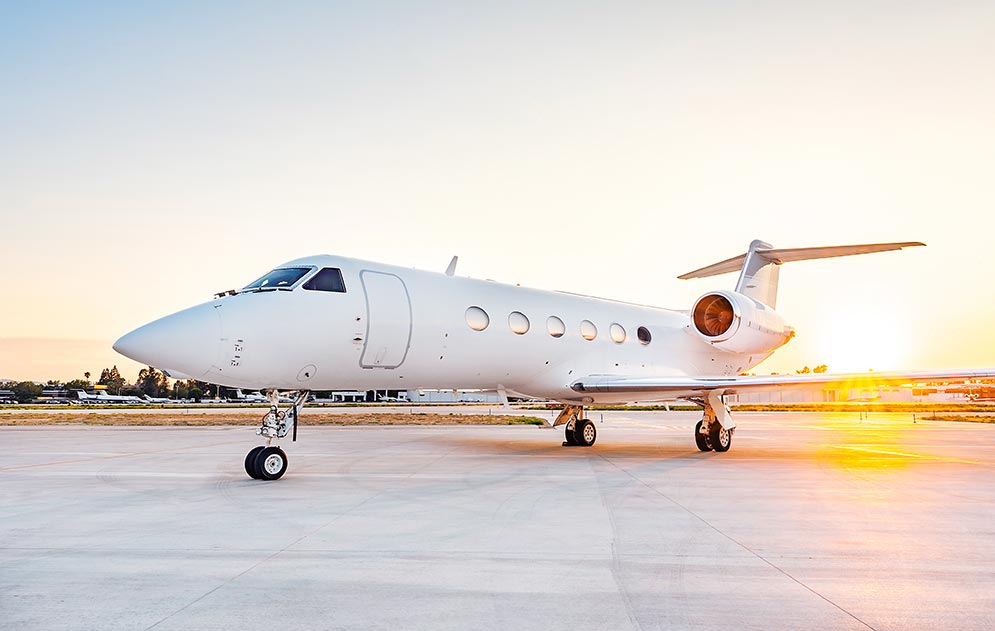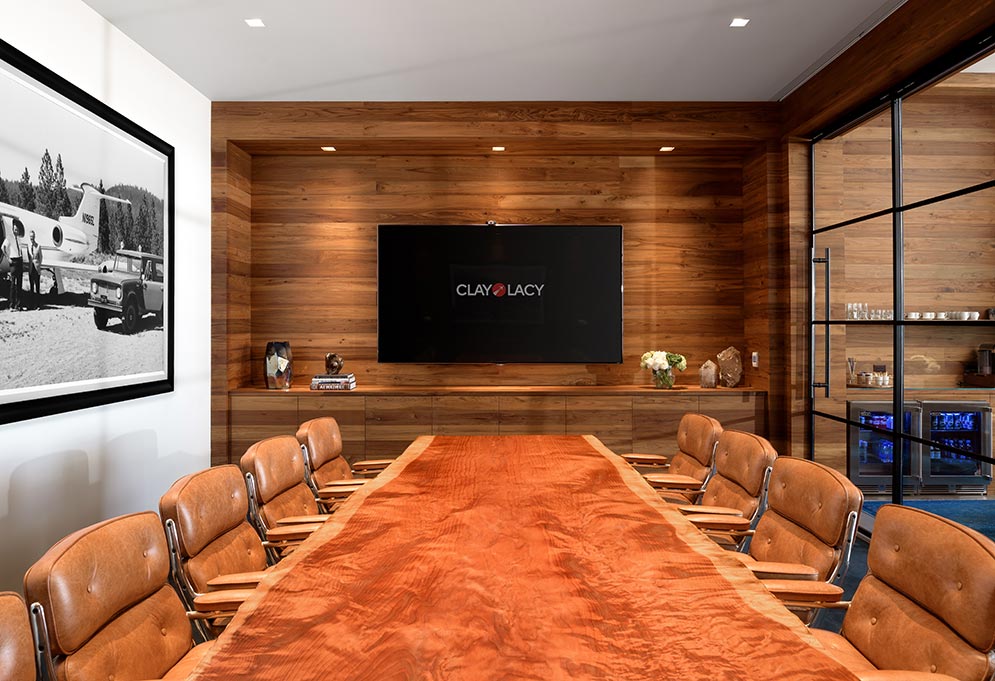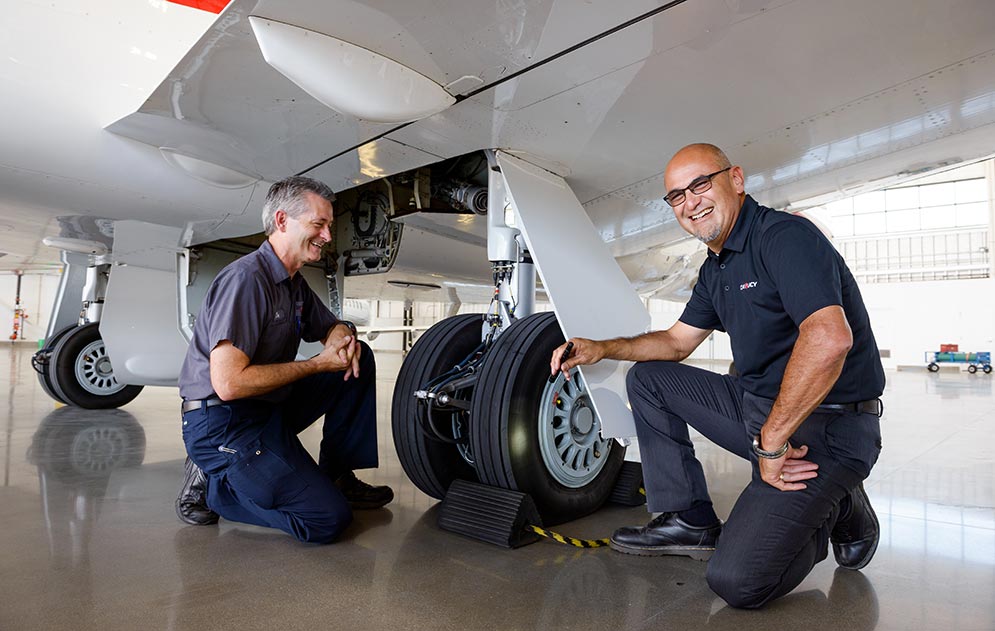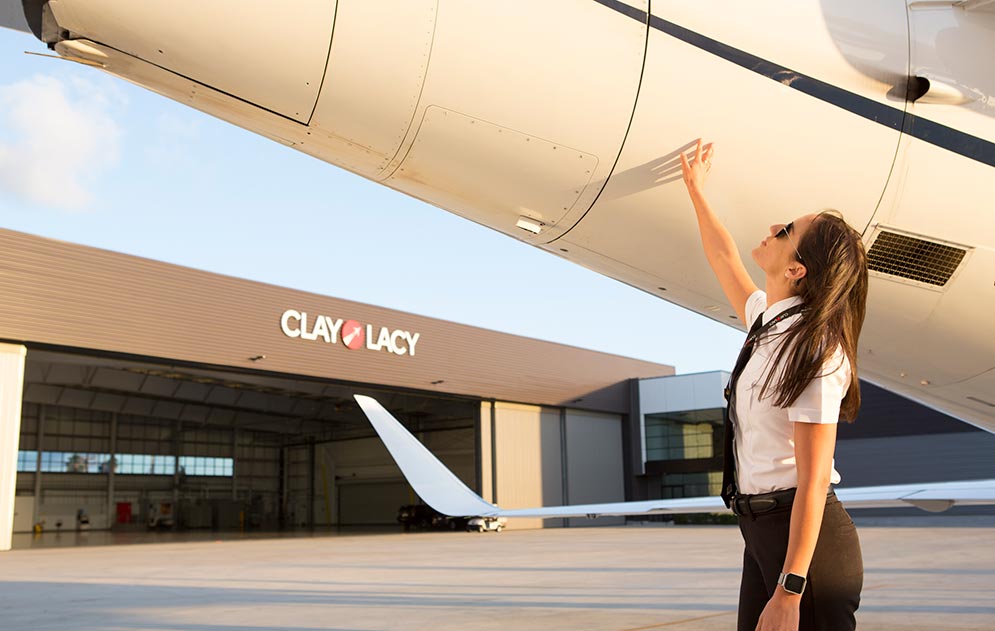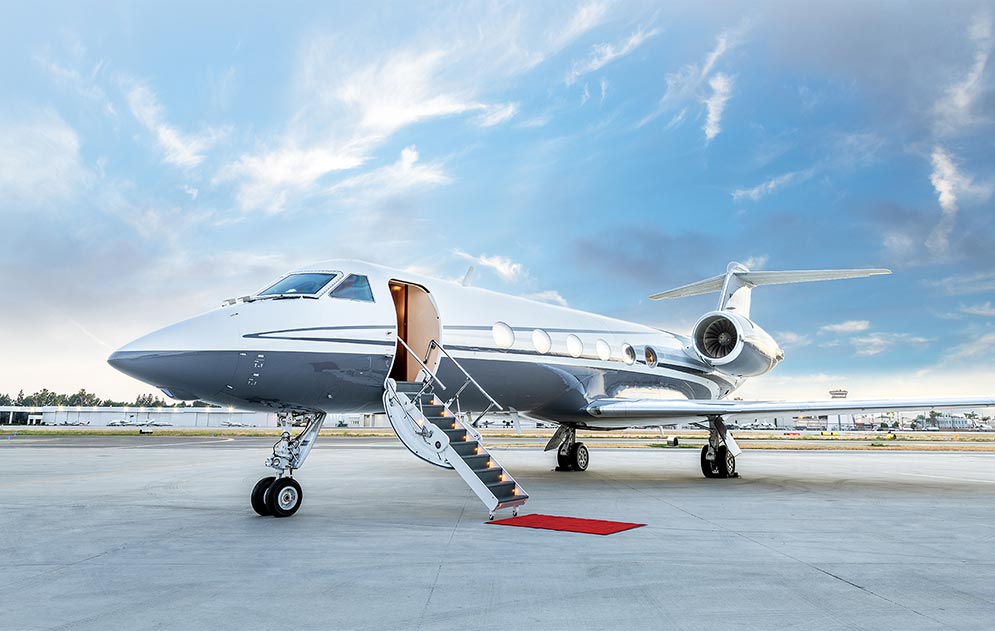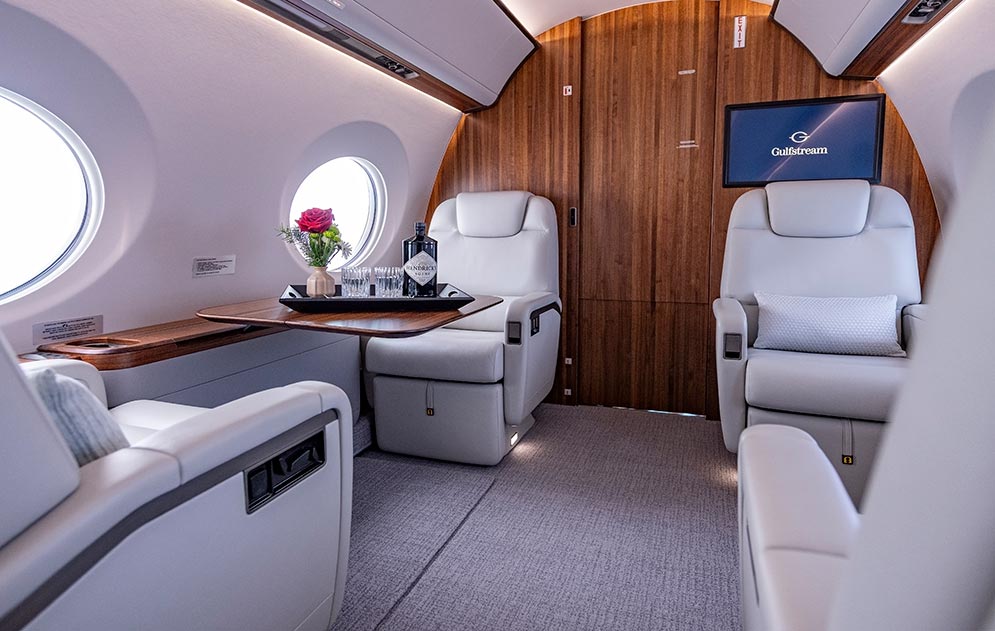
Buying A Private Jet: Is New or Preowned Best For You?
Considering the purchase of a private jet? Evaluating whether to buy a factory-new jet direct from the manufacturer or a top-quality preowned plane from a reputable aircraft brokerage firm is a significant decision as you enter aircraft ownership. Each option has its advantages, and much depends on market conditions which fluctuate along with the global economy.
Over the past few years plenty of first-time jet buyers have entered the new and preowned business jet aircraft markets. While the substantial increase in demand for private jet services has stabilized back to pre-pandemic levels, the benefits of owning your own jet are still more compelling than ever, especially as changing conditions have demonstrated the productivity and flexibility advantages of private jets and highlighted the importance of privacy, personal health and well-being – for ourselves, our family members, colleagues and employees.
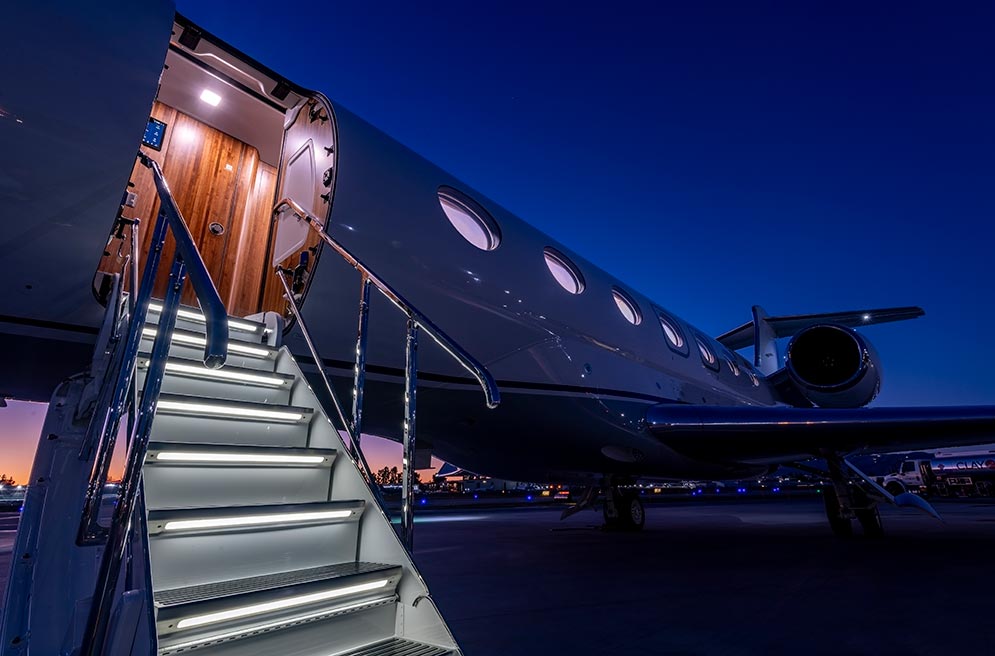
Running the Right Numbers – the Right Way
So, how do you decide whether a new or used aircraft is the best choice for you when buying a private jet? Firstly, understanding how you intend to utilize the aircraft is crucial. Will it primarily serve personal and business use, or will you explore the option of chartering your aircraft to offset the cost of ownership? Determining your mission profile –such as frequent destinations and preferred routes – is equally essential. Additionally, selecting the ideal home base airport involves weighing factors like hangar rental costs and availability.
These considerations will shape your decision-making process significantly and will help guide you toward the decision that yields the highest utilization of your aircraft and unique requirements. But first, let’s summarize the general pros and cons of new and preowned business jets.
Buying a New Private Jet
A new jet is, well, brand new. It will boast the latest in cabin design, avionics, safety and communications technologies and systems. Advanced, efficient and quieter engines that increase range and speed while reducing fuel costs and carbon footprint. The list goes on.
- Choose the specific cabin configuration, technologies and features you want, along with any fixtures and fittings you can imagine.
- Full warranties and no costly major inspections for years to come.
- Bonus depreciation schedules.
Factory New Jet Downsides
The purchase price to buy a private jet new is higher than a preowned jet—and there is a backlog of orders at every major manufacturer. It can take a year or longer for the jet you order to be completed and delivered. Although a manufacturer might have a few newly built demonstration planes to sell, they do not have inventory sitting, ready to be purchased.
Buying a Used Private Jet
The acquisition price of a preowned jet is significantly less than an equivalent new plane. And, unless your requirements are excessively rigid, even in a tight market you can find properly maintained, well-equipped jets that satisfy your mission needs, budget requirements and aesthetic standards. Using some of what you’ll save over a new jet, you could upgrade the interior, avionics, connectivity, cabin entertainment and other customizations to your preowned jet without adding too much downtime.
Used Private Jet Downsides
What are the disadvantages in buying a used private jet? The lion’s share of your savings can be diminished over time by higher fuel and maintenance/repair costs, optional and mandatory upgrades, warranty and subscription renewals, and other expenses that new jets don’t require.
- Older jets are typically less fuel efficient. This not only increases your operating costs but heightens interior cabin noise and widens your carbon footprint. That could be a concern for business purchases that need to meet preestablished sustainability objectives. However, the increasing availability and use of Sustainable Aviation Fuel (SAF) will have a much larger impact on reducing carbon emissions over a longer period of time. You can fly carbon neutral today by blending carbon offsets and SAF to fulfill your personal and corporate sustainability goals.
- Maintenance costs are higher. Products and systems need replacing or become obsolete. Even if you cover your plane from tip to tail with extended warranties, an expensive proposition in itself, you are still responsible for mandatory major inspections that can easily cost a million dollars or more.
- Preowned jets may lack upgrade paths. Unlike new aircraft that come with “future-ready” technologies that are cost efficiently upgraded, the equivalent systems or equipment on an older jet may no longer have an upgrade path. That means higher costs and longer installation timelines to upgrade to the latest avionics and safety features.
- Evolving regulations can add to your costs. Here is a real-world example: the FAA recently required all aircraft operating in U.S. airspace to have a tracking technology called ADS-B Out installed. While new aircraft were coming off the assembly line with ADS-B Out built in, most older business jets, thousands of them, were out of service for a week or more for the upgrade, along with a hefty bill for their owners.
- More maintenance means more downtime. This not only reduces the availability of your jet, but if you are offering your plane for charter to offset expenses, it will impact your charter revenue targets as well.
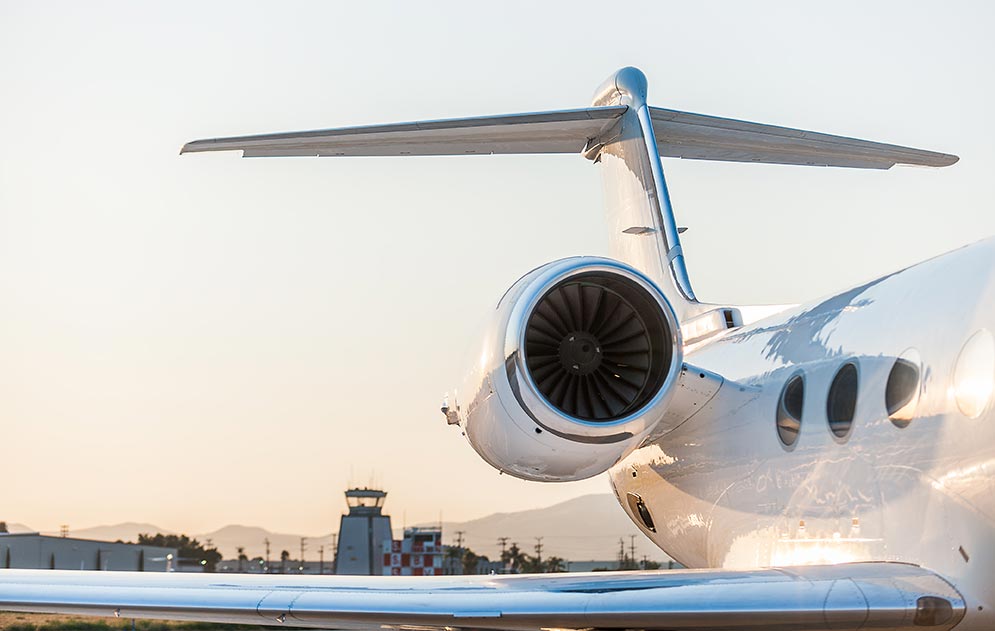
The Importance of Your Private Jet Annual Operating Budget
Understanding the financial landscape of aircraft ownership is paramount, especially when purchasing a new aircraft. It’s not just about the initial purchase price; it’s about forecasting the financial trajectory for the first few years post-delivery. Aircraft owners tend to consider changing or upgrading their aircraft every four to five years. Therefore, we recommend adopting a proactive approach, examining your operating budget over a three to five-year horizon. This foresight ensures you’re prepared for significant financial events during your ownership, such as major maintenance inspections, without being caught off guard.
Your annual operating budget is heavily influenced by both fixed and variable factors, such as jet fuel costs, crew salaries, maintenance expenses, warranties and subscriptions, among others. Aircraft budgets are intrinsically linked, meaning changes in factors like mission profile, airport base location, or planned annual utilization can significantly impact your bottom line. For companies managing large aircraft fleets, leveraging historical data and analytics becomes critical. By identifying trends and fleet-wide averages, these insights empower better planning and expectations to actual costs of aircraft ownership.
Evaluating Aircraft Net Present Value
Once you narrow your choices to a few specific new and preowned jets, you can use a cost method called Net Present Value to compare them at a highly detailed level. “Net Present Value is the difference between the present value of cash inflows and the present value of cash outflows over a period of time… the result of calculations used to find today’s value of a future stream of payments.” 1 In other words, you are looking at the time value of money. Where will a dollar invested today yield the greatest return in years to come? Factoring in initial purchase prices, upgrades and modifications, direct operating costs (like fuel and parts), fixed costs (such as salaries and insurance), taxes, projected residual value and all the other complexities of jet acquisition and ownership. As you might imagine, this is not “back-of-the-napkin math.” Another reason to have experienced aviation professionals on your side through every stage of the process in selling or buying a private jet.
Rely on Your Team of Trusted Advisors
The numbers are important, but they should inform your decision making process rather than control it. And you should always consider their source. After all, OEMs ultimately want to book orders for new planes, while aircraft brokers want to best represent their buyers, and sellers. You need your own team to advise you, including an aircraft broker, aviation attorney, and tax consultant representing your interests. You should also have an aircraft management company that does not sell or acquire jets. A team without conflicts of interest, whose only agenda is to give you wise, expert, honest guidance. Enabling you to make the decision that yields the highest utilization of your investment, and adds the most value throughout your jet ownership experience.
Whether you are simply considering ownership, or ready to buy a private jet, let us prove our legendary service to you. Contact our aircraft management experts.
1 Investopedia “Net Present Value, (NVP),” August 29 2021
